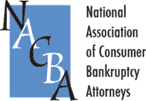
Financial literacy is an increasingly important skill for college students, yet many lack the necessary knowledge and skills to manage their finances responsibly. Without this knowledge, college students may be at risk of accumulating debt and other financial issues. This article will provide tips on how to build financial literacy skills while avoiding debt in order to help college students better serve themselves and others.
The importance of understanding personal finances has never been greater. In the current economy, college students must navigate complex financial decisions such as student loans and credit cards, but often lack the education and resources needed to make informed choices. Without a basic understanding of financial principles, students may be unable to properly evaluate their options or make informed choices that can have long-term consequences.
Fortunately, there are steps that can be taken to improve financial literacy for college students. This article will discuss strategies for building financial skills as well as methods for avoiding debt. With these tips in hand, college students can take control of their finances and set themselves up for future success - both financially and in life.
Key Financial Skills For College Students
College students have a monumental task in front of them when it comes to developing financial literacy. With the skyrocketing cost of tuition and the challenge of student loan debt, it has become more important than ever for college students to acquire sound money management skills. Financial literacy is the key to helping college students achieve financial goals and avoid debt.
The first step in building financial literacy as a college student is understanding basic money management concepts such as budgeting, saving, investing, and credit scores. Budgeting skills are essential because they allow college students to track their expenses and create a plan that works with their income. Saving allows college students to develop an emergency fund so they can be prepared for unexpected costs. Investing helps build wealth over time by taking advantage of compounding returns on investments. Credit scores are also important because they demonstrate how responsible a person is with managing credit and can affect future borrowing ability. Knowing these basics of money management will aid college students in creating sound financial habits for life after graduation.
Financial literacy also involves understanding the consequences of using credit cards and student loans responsibly. Too much reliance on debt can lead to unmanageable payments down the road, while proper use can help build good credit history. For example, if a student takes out too many loans or uses credit cards recklessly, he or she could end up with a mountain of debt that is difficult to pay off after graduating from college. In order to avoid this situation, it is important for college students to understand the risks associated with borrowing before taking out any type of loan or using their credit card for purchases.
Financial literacy is an essential skill for all college students looking to take control of their finances and set themselves up for success after graduation. Learning these key concepts now will help ensure that graduates are prepared for life’s financial challenges in the future. College students should strive to gain knowledge about money management topics such as budgeting, saving, investing, and credit scores so that they can make smart decisions about their finances throughout their lives.
Managing Student Loans And Other Debt
Student loans are often a necessary part of college, but it’s important to understand the impact that taking out student loans can have on your financial future. It’s essential for college students to develop a financial plan that includes strategies for managing their student loan debt and other forms of debt, such as credit card debt. Taking out student loans without a plan can be detrimental to your credit score and overall financial health.
Financial literacy for college students is key in understanding how to make sound financial decisions, especially when it comes to taking out student loans. There are several steps that students should consider when creating a budget and managing their debt. First, create a budget and track your spending habits so you know where your money is going each month. Next, prioritize loan payments by making sure the minimum payments are made on time and paying extra if possible. Finally, research refinancing or consolidation options if needed to reduce interest rates or combine multiple loans into one payment. With careful planning and diligent repayment habits, it’s possible to manage student loan debt responsibly and ultimately benefit from the educational opportunities available through higher education.
Avoiding Common Financial Pitfalls
A recent survey found that nearly 70% of college students are unable to identify basic financial concepts. This statistic emphasizes the importance of having a good understanding of personal finance and avoiding common financial pitfalls. College students often face an array of decisions related to money management, from managing their student loan debt to budgeting for everyday expenses. To avoid these pitfalls, it is essential for college students to gain a better understanding of financial aid, personal finance, and how to make informed decisions about their finances.
Financial literacy involves gaining knowledge about important financial concepts such as taxes, savings plans, and investing. Financial literacy can help college students make more informed decisions about their finances and provide them with the skills needed to manage their money responsibly. In addition, learning about financial aid options available can help students find ways to reduce the cost of college and minimize the amount they will need to borrow in loans.
To gain a better understanding of personal finance, college students should take advantage of resources such as online courses or workshops offered through their school’s student services department. They should also consider talking with family members or friends who have experience managing money effectively. By building their financial knowledge and developing strategies for staying out of debt, college students can set themselves up for success both during school and after graduation.
Best Practices For Sales Contracts In Bankruptcy
When it comes to bankruptcy, the importance of financial literacy cannot be overstated. Knowing best practices for sales contracts is key to avoiding debt and managing finances responsibly. Of course, it is important to understand the legal implications of a contract before signing it. However, there are also some practical steps one can take to reduce risk when entering into an agreement with another party.
One such step is researching the company or individual prior to agreeing to any terms. This includes checking their credit score, reading reviews from other customers, and verifying credentials with the Better Business Bureau (BBB). Additionally, it is important to understand all associated fees and interest rates that may accompany the contract. Knowing this information upfront will help ensure that both parties are aware of any additional costs that could arise after signing the agreement.
Another good tip for avoiding excessive costs in a sales contract is sticking to fixed-term contracts whenever possible. These agreements usually have predetermined termination dates and penalties for early exit, helping protect both parties from unexpected charges down the line. It is also beneficial to read through the entire document thoroughly and ask questions about anything that seems unclear before committing pen to paper. Taking these precautions can help college students avoid financial pitfalls during bankruptcy proceedings and make more informed decisions about their future financial options.
Frequently Asked Questions
What Resources Are Available To Help College Students Learn About Financial Literacy?
Financial literacy is an essential skill for college students, but it can be difficult to know where to start. Fortunately, there are a variety of resources available that can help students learn more about managing their finances.
Take the case of Jackie, a freshman engineering student at a large university. She has some money saved up from summer jobs and scholarships, but she’s never had to manage her own money before. She knows it’s important to make smart financial decisions so she doesn’t end up in debt after graduation, so Jackie turns to online resources for help.
One great place for Jackie to start is with free online courses. Many colleges and universities offer free courses in budgeting and personal finance that can give students a good foundation of knowledge about saving, investing and avoiding debt. There are also many independent websites that offer interactive tutorials on financial literacy topics such as credit scores, interest rates and taxes. For more personalized advice tailored specifically to her situation, Jackie could ask her school’s career center if they offer any one-on-one counseling sessions with financial advisors or look into virtual mentoring services like Money Mentor or Financial Coaching Corps.
In addition to online resources, there are also numerous books available on the subject of financial literacy that can provide valuable guidance on how to create a budget and save for retirement or reduce spending in certain areas. Additionally, some campus organizations may host classes or seminars led by experts in the field who can provide further insight into developing sound financial habits down the line. With all these options available, college students like Jackie have no shortage of ways to learn about financial literacy and develop the skills necessary for making smart money decisions now—and well into their futures.
Are There Student-Specific Credit Cards That Can Help Build Credit?
Student-specific credit cards may be a good option for college students looking to build their credit. These cards often have more lenient approval requirements and offer features that can help young adults take their first steps into the world of personal finance.
Credit cards for students come with a few key benefits:
They offer lower interest rates than traditional cards, making it easier to pay off balances in full and avoid debt.
Many student credit cards also feature cash back rewards, helping you build your savings while also earning rewards.
Lastly, many student credit cards provide extra protections such as fraud protection and purchase protection.
When looking for a student card, it’s important to compare the terms and conditions of different offers to find the best fit for your needs. Make sure to read the fine print so you know what fees and charges apply and what kind of rewards or other benefits are available. It’s also important to consider how much you can afford to spend each month and make sure you use your card responsibly by paying off your balance in full each month or only spending within your means. With responsible use, a student-specific card can help you build good financial habits while helping you establish a solid credit score.
How Can College Students Protect Themselves From Identity Theft?
Identity theft is a serious issue, and college students are especially vulnerable. To protect themselves, there are several steps they can take.
First, college students should review their credit reports often and be aware of any suspicious activity. They should also use strong passwords for all their online accounts and financial information. Some further tips for protecting personal information include:
Regularly updating anti-virus software on all devices.
Using two-factor authentication when available.
Not using public Wi-Fi networks to access sensitive information like banking or credit card details.
Keeping close track of bank statements and credit card charges.
Refraining from providing personal information such as Social Security numbers unless absolutely necessary.
By taking these steps, college students can protect themselves from identity theft and the potential problems that come with it, such as stolen funds or damaged credit scores. Additionally, they should be wary of any emails or phone calls asking for personal information and never click on links in suspicious emails or text messages. If something looks off, it’s best to err on the side of caution and contact the company directly to verify the request before providing any confidential data.
What Are The Best Ways To Save Money While In College?
College life is a time of learning and growth, but it can also make it difficult to manage finances. Without the right guidance and resources, college students may find themselves in debt or unable to save for their future. To help college students protect their financial health, here are some tips on how to save money while in school.
Making budgeting a regular habit can go a long way towards helping college students manage their money. Budgeting helps ensure that they have enough money each month to cover all expenses without going into debt. It also allows them to set aside money for savings or investments. Creating a budget is not as complicated as it sounds; there are online tools like Mint or YNAB that make budgeting easy and convenient. Additionally, taking advantage of student discounts is another great way to save money while in college. From entertainment venues to restaurants and stores, many businesses offer special deals for students which can help reduce costs significantly over time.
Finally, utilizing free resources like local libraries for textbooks or free events on campus is another great way for college students to save money while in school. Libraries often have textbooks available for rent at minimal cost and many universities provide interesting educational events and activities at no charge. Taking advantage of these free resources can help lower the cost of attending college and give students the opportunity to stay within their budgets.
Are There Any Grants Or Scholarships Specifically For College Students With Financial Literacy Challenges?
Many college students face financial literacy challenges, and it’s important to find ways to build skills and avoid debt. Fortunately, there are grants and scholarships specifically for students with these difficulties. Understanding the options available can help make college more affordable and set students up for future success.
One great resource for students facing financial literacy challenges is scholarships.com. This website offers a comprehensive list of grants and scholarships specifically targeted towards students with low income or who demonstrate financial need. Additionally, many employers offer grants or tuition assistance for employees pursuing higher education. Finally, some universities have their own scholarship programs that award funds based on merit or need.
It’s important to research all available options when looking for financial assistance in college. With the right resources, any student can build the skills they need to succeed financially while in school and beyond. Understanding the available resources is key to finding the best fit for each student’s individual needs and goals.
Conclusion
Financial literacy is an important skill for college students to have in order to prevent debt and build their financial future. By taking the time now to learn about budgeting, credit cards, identity theft and saving money, students can equip themselves with the knowledge they need to make sound financial decisions.
In order to take advantage of the many resources available to help college students become financially literate, it is important for them to start early. From online courses, books and workshops on personal finance topics, there are plenty of tools that can help. Additionally, student-specific credit cards may be a good way for college students to begin building their credit score while using rewards programs or other features that benefit them financially.
Finally, college students should become aware of common scams and methods of identity theft so they can protect themselves from fraudulent activities. By taking the steps necessary to become more financially literate, college students can set themselves up for success after graduation and beyond by avoiding excessive debt and building a solid foundation for managing their finances in the future. Allusion here serves as a reminder that gaining financial literacy now can save a lot of trouble later on down the road.









